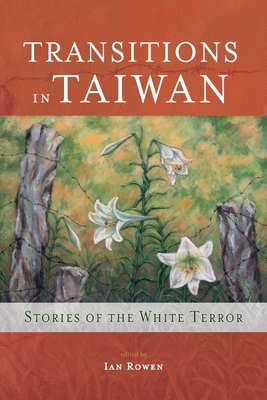Transitions in Taiwan: Stories of the White Terror

Transitions in Taiwan: Stories of the White Terror
Taiwan's peaceful, democratic society is built upon decades of authoritarian state violence with which it is still coming to terms. At the close of World War II in 1945, after fifty years of Japanese colonization, Taiwan was occupied by the Chinese Nationalist Party (KMT). The party massacred thousands of Taiwanese while it established a military dictatorship on the island with the tacit support of the United States.
Although early episodes of state violence (such as the 228 Incident in 1947) and post-1980s democratization in Taiwan have received a significant amount of literary and scholarly attention, relatively less has been written or translated about the four-decade period known as the White Terror, which began right after the 228 Incident and continued until the end of martial law in 1987. The White Terror was aimed at eliminating alleged proponents of Taiwanese independence as well as supposed communist collaborators, and it wiped out an entire generation of intellectuals. Both native-born Taiwanese as well as mainland Chinese exiles were subject to imprisonment, torture, and execution. During this time, the KMT institutionally favored mainland Chinese over native-born Taiwanese and reserved most military, educational, and police positions for the former. Taiwanese were forcibly "reeducated" as Chinese subjects. China-centric national history curricula, forced Mandarin-language pedagogy and media, and the renaming of streets and public spaces after places in China further enforced a representational regime of Chineseness to legitimize the KMT's authority.Taiwan's contemporary commitment to transitional justice and democracy hinges on this history of violence, for which this volume provides a literary treatment as essential as it is varied. This is among the first collections of stories to comprehensively address the social, political, and economic aspects of the White Terror, and to do so with deep attention to its transnational character. Featuring contributions from some of Taiwan's most celebrated authors and from genres that range between realism, satire, and allegory, this book examines the modes and mechanisms of the White Terror and party-state exploitation in prisons, farming villages, slums, military bases, and professional communities.
Transitions in Taiwan: Stories of the White Terror is an important book for Taiwan studies, Asian Studies, literature, and social justice collections.
This book is part of the Cambria Literature
PRP: 272.72 Lei
Acesta este Prețul Recomandat de Producător. Prețul de vânzare al produsului este afișat mai jos.
245.45Lei
245.45Lei
272.72 LeiLivrare in 2-4 saptamani
Descrierea produsului
Taiwan's peaceful, democratic society is built upon decades of authoritarian state violence with which it is still coming to terms. At the close of World War II in 1945, after fifty years of Japanese colonization, Taiwan was occupied by the Chinese Nationalist Party (KMT). The party massacred thousands of Taiwanese while it established a military dictatorship on the island with the tacit support of the United States.
Although early episodes of state violence (such as the 228 Incident in 1947) and post-1980s democratization in Taiwan have received a significant amount of literary and scholarly attention, relatively less has been written or translated about the four-decade period known as the White Terror, which began right after the 228 Incident and continued until the end of martial law in 1987. The White Terror was aimed at eliminating alleged proponents of Taiwanese independence as well as supposed communist collaborators, and it wiped out an entire generation of intellectuals. Both native-born Taiwanese as well as mainland Chinese exiles were subject to imprisonment, torture, and execution. During this time, the KMT institutionally favored mainland Chinese over native-born Taiwanese and reserved most military, educational, and police positions for the former. Taiwanese were forcibly "reeducated" as Chinese subjects. China-centric national history curricula, forced Mandarin-language pedagogy and media, and the renaming of streets and public spaces after places in China further enforced a representational regime of Chineseness to legitimize the KMT's authority.Taiwan's contemporary commitment to transitional justice and democracy hinges on this history of violence, for which this volume provides a literary treatment as essential as it is varied. This is among the first collections of stories to comprehensively address the social, political, and economic aspects of the White Terror, and to do so with deep attention to its transnational character. Featuring contributions from some of Taiwan's most celebrated authors and from genres that range between realism, satire, and allegory, this book examines the modes and mechanisms of the White Terror and party-state exploitation in prisons, farming villages, slums, military bases, and professional communities.
Transitions in Taiwan: Stories of the White Terror is an important book for Taiwan studies, Asian Studies, literature, and social justice collections.
This book is part of the Cambria Literature
Detaliile produsului











